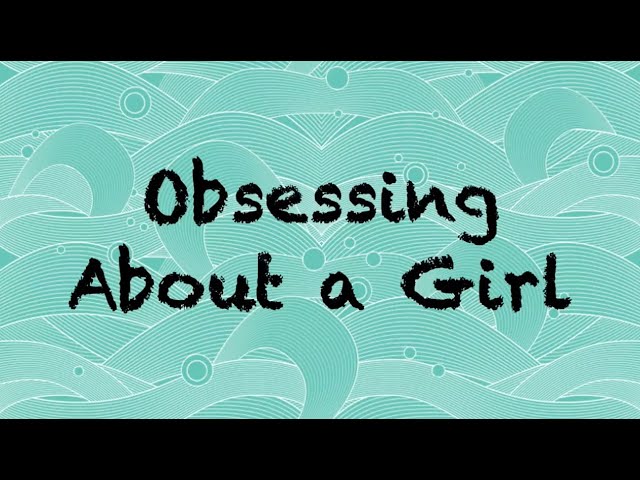Strong Girl, Weakling Boy

Key takeaways
- 🎬 The trend in movies and TV often portrays weak boys and strong girls, where boys are depicted as incompetent and foolish while girls are competent and cool.
- 🎥 “Ready Player One” exemplifies the portrayal of weak male protagonists obsessed with nostalgia, contrasting sharply with capable characters from the 80s like Marty McFly.
- 📽️ In contemporary movies, boys are portrayed as incapable and overwhelmed by girls, a deliberate choice by writers and directors to depict boys as weaklings.
- 💪 Acting weak has become fashionable, with hesitation and uncertainty prevailing over firmness and confidence, leading to an internalized sense of weakness.
- 🤔 Rejecting the fashion of weakness and projecting strength, even in uncertainty, is crucial for personal development and avoiding the pitfalls of indecisiveness.
- 🔄 Encouraging weakness and indecisiveness in young men makes them easy to manipulate and unattractive to women, leading to bitterness and resentment.
- 🚶♂️ Emulating characters like Marty McFly, who exhibit decisiveness and competence, is preferable to adopting the weakling portrayal seen in modern media.
Weakling Boys and Tough Girls: The Disturbing Trend in Movies and TV
The Rise of Weak Male Characters
I’ve been noticing a really disturbing trend in movies and TV lately. It’s the portrayal of weakling boys and tough girls. In many movies, the male protagonist is bumbling, goofy, and incompetent, while the female characters, often of the same age or even younger, are portrayed as super competent and cool.
One movie that made this trend particularly apparent to me was “Ready Player One” directed by Steven Spielberg. The main character, whose name I can’t recall, is obsessed with 80s culture and drives a DeLorean, the famous car from “Back to the Future.” It struck me as odd that a movie obsessed with 80s nostalgia would be set in the year 2040. It’s like today’s obsession with 1950s pop culture, neglecting our own current pop culture.
In “Ready Player One,” the male protagonist is portrayed as a bumbling buffoon, incapable of anything except regurgitating trivia from the 80s. In contrast, Marty McFly, the male lead in “Back to the Future,” was a capable and competent character. He was a skilled guitar player, a talented skateboarder, and most importantly, he had a girlfriend. Marty McFly was portrayed as goofy but confident, while the male characters in current movies seem weak and outmatched by the girls.
The Fashion of Weakness
So why do movies and TV shows portray young men as weaklings? It seems to be a fashionable trend in our society. Men are encouraged to act tentative, unsure of themselves, and weak. This fashion of weakness is prevalent not only in movies but also in real life. Many young men today hesitate to express their opinions confidently. They often use wishy-washy language and avoid taking a firm stance on anything.
However, acting weak can have negative consequences. When you act weak, you start to internalize that weakness, and it becomes a part of your identity. On the other hand, if you project strength, even when you don’t feel strong, you will come across as confident and gain real strength. It’s important to reject this fashion of weakness and to project strength, especially when you’re unsure. Making a clear decision, even if it turns out to be wrong, is better than being indecisive.
Indecisiveness and Weakness
Indecisiveness is worse than making a bad decision. This holds true not only in military situations but also in life. In the military, officers are taught to make clear decisions, even if they might be hasty or wrong. Being indecisive and weak can lead to catastrophic results. It’s better to take action and make a less optimal decision than to be indecisive and passive.
In my own experience, indecisiveness has always been detrimental. I have learned that being decisive, even when uncertain, is crucial. Decisiveness is a valuable skill that can be learned and practiced. It’s not about having all the answers or being right all the time. It’s about taking action and moving forward with conviction.
The Danger of Weakness
Why does our culture encourage young men to be weak and indecisive? The answer is simple: it’s easier to control weak individuals. When you’re weak and indecisive, you’re easily swayed and manipulated. Those who have power can easily push you around and make you do their bidding. Additionally, women are naturally repelled by weak and indecisive men. They seek strength and confidence in their partners.
Unfortunately, many young men who follow the trend of weakness end up bitter and resentful. They don’t attract women and become easy targets for manipulation. It’s a disaster that can be avoided by rejecting the fashion of weakness and embodying traits of strength and decisiveness.
Embrace Strength and Confidence
Instead of being a weakling, be like Marty McFly. He may have been a goofy kid, but he was competent, capable, and cool. He took action and made decisions without waiting for others to tell him what to do. In real life, women aren’t the ones with all the answers. They can be just as indecisive as anyone else. Be confident in your own abilities and project strength, even when you’re uncertain.
Remember, indecisiveness is worse than making a bad decision. It’s better to take action and learn from your mistakes than to be paralyzed by indecision. Reject the fashion of weakness and embrace strength and confidence. Don’t be a weakling; be a leader and pursue your goals with determination.






